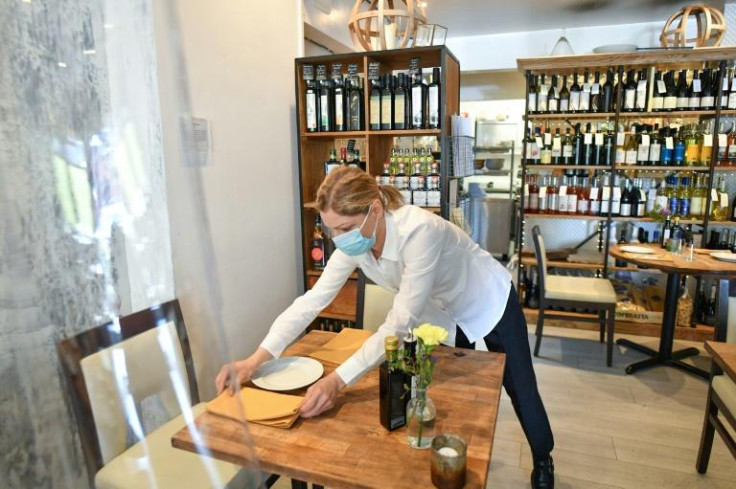Cumbria Is Fighting Staffing Crisis In Hospitality And Tourism Sector With Over 200,000 Unemployed
While 80 per cent of Cumbria's population said that they did not want a job, MPs and CEOs are fighting to save its hospitality and tourism sector from crashing.

An investigation into tourism in the Lake District, conducted by Cumbria Tourism, has exposed staffing issues for continuing to have a detrimental impact on Cumbria's tourism businesses.
According to recent census and labour market statistics, in 2023, more than 20,000 people are unemployed in Cumbria. This number of unemployed residents does not include the number of retired persons living in Cumbria.
It has been estimated that Cumbria is currently home to around 123,000 people over the age of 65.
The recent labour market statistics also exposed that out of Cumbria's huge population, more than 80 per cent of people said that they did not want a job.
The report found that a staggering 79 per cent of businesses report that recruiting new staff has been a problem. Almost 63 per cent of businesses in Cumbria also said that the lack of available staff has been limiting business capacity.
In response to the staffing crisis, South Lakes MP Tim Farron and the Head of Partnerships and Projects at Cumbria Tourism, Rachel Tyson, attended a meeting which set out to discuss the lack of employment in the tourism industry.
The meeting focused on the catering and hospitality T-level qualification, which has been frequently delayed.
After the meeting, Farron said: "I'm really grateful to the secretary of state for listening to the challenges that businesses in Cumbria are facing when it comes to the recruitment and retention of staff."
Farron also called on the Conservative Government to "invest in skills and training" in the hospitality and tourism sector.
"They also need to work with employers to help make hospitality and tourism an exciting long-term career plan for young people," he added.
According to a Joseph Rowntree Foundation (JRF) briefing, over half of workers in hospitality receive low wages.
Hospitality workers make up more than 15 per cent of those considered to be living in poverty in the UK. The annual salary for a hospitality worker in the UK currently lies between £19,000 and £23,000.
Due to the low pay, the hospitality industry across the UK remains significantly understaffed.
According to the House of Commons Library, since 2019, hospitality businesses have made up just three to five per cent of businesses in each region across the UK.
While wages in the hospitality sector remain low, a UKHospitality report notes that the industry has increased its annual economic contribution to the UK by £20 billion to £93 billion over the past six years.
The tourism sector has become less attractive to those seeking work after the COVID-19 pandemic left people unemployed and seeking finances from the government.
Tourism roles include travel agents, restaurant managers, tour guides and hotel personnel.
Before the COVID-19 pandemic, the UK Travel and Tourism sector made up 9.9 per cent (£234.5 billion) of the economy, but the contribution has since collapsed and now represents just 4.3 per cent (£93.8 billion) of the UK's GDP.
In regard to the meeting with Farron, Tyson added: "With the visitor economy being such a key industry in Cumbria, it is vital that we can build the talent pipeline required so that businesses can thrive."
Tyson also recognised the lack of applications being put towards the hospitality and tourism sector, and acknowledged: "Having the right qualifications is an essential part of building interest in careers within the sector."
With reference to the development of the T-level qualification in hospitality, the head of partnerships and projects said: "The T-level in hospitality would be a key route into careers in the visitor economy and a stepping stone onto higher level apprenticeships."
"We are grateful that Tim Farron MP managed to secure the meeting with the secretary of state for education and we will continue to feed into the conversations with the Department for Education," Tyson continued.
© Copyright IBTimes 2025. All rights reserved.




















